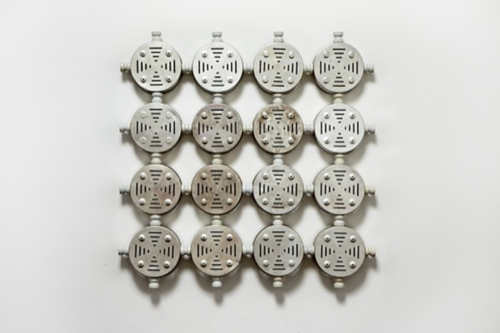A ‘national beverage’: the ‘sugary’ tea-ritual in Nancy Cato’s Brown Sugar
Keywords:
Nancy Cato, Kanakas, Tea-ritual, Brown Sugar, HybridityAbstract
In this paper I will deal with the re-interpretation of the tea-ritual and the sugar metaphors in Nancy Cato’s Brown Sugar from a symbol of exclusion and purity to one of hybridity. In the same way the vehicle speaks of the tenor, so the past in the novel enlightens the present. Moreover, I will start by focusing on Cato’s literary works underlying two of the many important themes unfolded in them; then, I will analyse these themes in Brown Sugar and focus on the situation of South Pacific Islanders and women to unveil the cracks in the myth of the nation or, in other words, what was believed to be a pluralistic and egalitarian society at the time of her writing Brown Sugar.
Keywords: Nancy Cato, Kanakas, Tea-ritual, Brown Sugar, Hybridity
References
Ashcroft, Bill. Caliban’s Voice: The Transformation of English in Post-Colonial Literatures. London and New York: Routledge, 2009.
Banivanua-Mar, Tracey. Violence and Colonial Dialogue: The Australian-Pacific Indentured Labour Trade. Honolulu: University of Hawai’i Press, 2007.
Blainey, Geoffrey. Black Kettle and Full Moon: Daily Life in a Vanished Australia. Camberwell: Viking, 2003.
Butler, Judith. Bodies that Matter. On the Discursive Limits of ‘Sex’. New York and London: Routledge, 1993.
Cato, Nancy. Brown Sugar. Hodder: New English Library, 1988.
Cato, Nancy. “The Earth Mother.” The Canberra Times. 18 September 1993. 20.
de Berg, Hazel. “Nancy Cato interviewed by Hazel de Berg.” 5 March 1975. The Hazel de Berg Collection. http://nla.gov.au/nla.oh-vn2330252 (access 10/06/2015)
G. Hage, Against Paranoid Nationalism. Searching For Hope in a Shrinking Society. Annandale (NSW): Pluto Press Australia, 2003.
Goldsworthy, K. “‘Ordinary Australians’: Discourses of Race and Nation in Contemporary Australian Political Rhetoric”, in Wimmer A. (ed.), Australian Nationalism Reconsidered. Maintaining a Monocultural Tradition in a Multicultural Society. Tübingen: Stauffenburg Verlag, 1999. 215-222.
Knight, Jessica. “‘A Poisonous Cup?’ Afternoon Tea in Australian Society, 1870-1914” (Bachelor of Arts Dissertation, The University of Sydney, 2001).
Martin, Susan. ‘National Dress or National Trousers?’. The Oxford Literary History of Australia. Eds. Bruce, Bennett and Jennifer, Strauss. Oxford: Oxford UP, 1998. 89-104.
McLeay, C. “Inventing Australia: a Critique of Recent Cultural Policy Rhetoric”. Australian Geographical Studies. 35 (1) March 1997. 40-46.
Papers of Nancy Cato, UQFL107, Box 2, Item 2, Fryer Library, University of Queensland Library.
Portoghesi, Paolo. After Modern Architecture. New York: Rizzoli. 1982. (tr. M. Shore)
Shakespeare, William. The Tempest. Milano: Garzanti, 1995.
Turner, Graeme. Making it National. Nationalism and Australian Popular Culture. St Leonards (NSW): Allen & Unwin, 1994.
Walker, Shirley. ‘Perceptions, 1855-1915’. The Penguin New Literary History of Australia. Ed. Laurie, Hergenhan. Victoria: Penguin Books, 1988. 157-173.
White, Richard. Inventing Australia. Images and Identity 1688-1980. St Leonards (NSW): Allen & Unwin, 1981.
Wills, Sarah. “Un-Stitching the Lips of a Migrant Nation.” Challenging Histories: Reflections on Australian History (special issue of Australian Historical Studies). 33 (118) 2002. 71-89.
Downloads
Published
Issue
Section
License
The copyright for articles in this journal is retained by the author(s), with first publication rights granted to the journal. By virtue of their appearance in this open access journal, articles are free to use with proper attribution in educational and other non-commercial sectors.Attribution-NonCommercial-ShareAlike 2.1 Australia
This work is licensed under the Creative Commons Attribution-NonCommercial-ShareAlike 2.1 Australia License. To view a copy of this license, visit http://creativecommons.org/licenses/by-nc-sa/2.1/au/ or send a letter to Creative Commons, 543 Howard Street, 5th Floor, San Francisco, California, 94105, USA.

